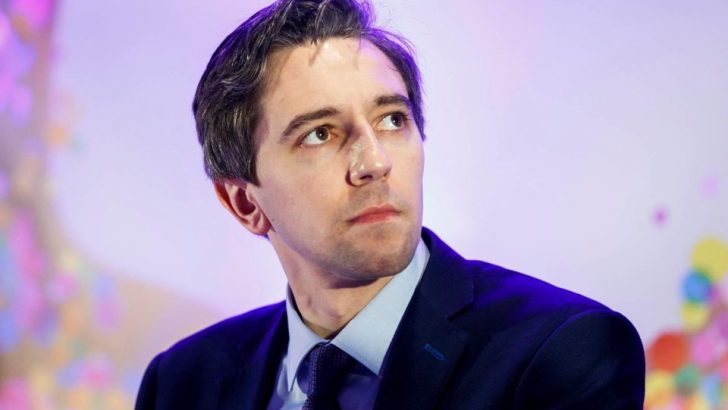Minister for Health Simon Harris is part of a breed of politicians who get into the game at a young age. He has never had a job outside of politics. Before running for election himself, he served as an assistant to Francis Fitzgerald. At the tender age of 25, Mr Harris was elected to the Dáil following the collapse in support for Fianna Fáil.
As a fresh-faced deputy, he was chosen by Fine Gael to nominate Enda Kenny for appointment as Taoiseach. I say appointment, it was more of a coronation since the Fine Gael-Labour coalition held 115 of the 166 seats in the house.
Mr Harris’ rise to power has been meteoric. In an era when virtually everyone goes to college, a man without a university degree serving as Minister for Health is quite an achievement.
Mr Harris has certainly guaranteed his place in the history books. When the story of the early part of 21st Century comes to be written he will be remembered as the man who spearheaded the campaign to remove the right to life of unborn children from Bunreacht na hÉireann.
Human rights
It’s not an achievement anyone serious about human rights would be proud of. But, it’s all the more curious given the fact that it appears to be an extraordinary volte-face on the part of Mr Harris.
When the deputy was first seeking election to the Oireachtas in 2011 and quite unsure of his fate, he sent an email to the Pro-Life Campaign claiming that he was a committed supporter of the right to life and would oppose any legislation to introduce abortion. He concluded his missive by pleading with the Pro-Life Campaign to ask supporters to vote for him as he would be a reliable pro-life voice in the Dáil.
Early signs seemed promising. When Savita Halappanavar died in 2012 after doctors failed to notice that she was suffering from sepsis, Mr Harris wrote in the Sunday Independent that her death should not be used by those seeking to change the law on abortion and remove constitutional protection from the unborn child.
So, what happened to turn Mr Harris into an enthusiastic supporter for abortion? Well, only Mr Harris knows for sure. Like many politicians, he claims that he has been on a journey on the issue. He has, he claims, changed his mind on the issue and recanted of his previously articulated conviction that the taking of innocent life is wrong.
Were Mr Harris a reluctant supporter of abortion in rare circumstances that might be a lot more plausible. However, he has not just recanted what he previously claimed were deeply-held principles, he has become almost evangelical is his support for abortion. Add to this the fact that he is venomous in his reaction to his supposed erstwhile fellow travellers in the pro-life movement.
He has stubbornly resisted even modest amendments to the abortion law now going through the Oireachtas including around conscientious objections for pain relief for the unborn babies who will be killed under the proposed legislation.
The U-turn is so profound it’s hard to explain. Mr Harris claims that he was once pro-life and claims to have had a conversion experience. But, set that against the fact that he shows no ability to understand or empathise with where pro-life people are coming from. If, at some stage in the past, he believed that the killing of an unborn child was wrong, why is he so uncompromising with those who still hold that position?
Michael Kelly is co-author of a new book with Austen Ivereigh How to Defend the Faith – Without Raising Your Voice – it is available from Columba Books.


 Michael Kelly
Michael Kelly Minister for Higher Education Simon Harris.
Minister for Higher Education Simon Harris. 